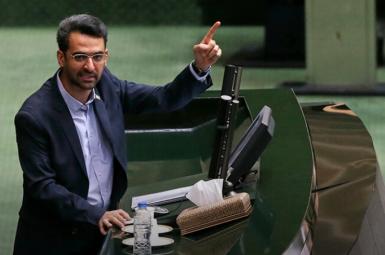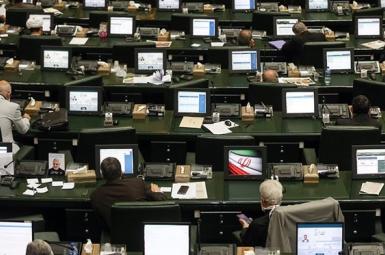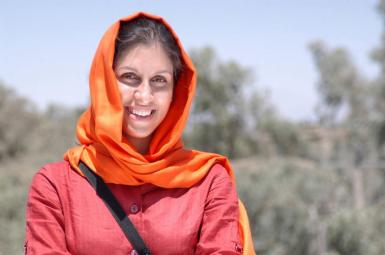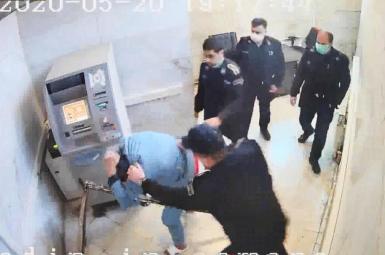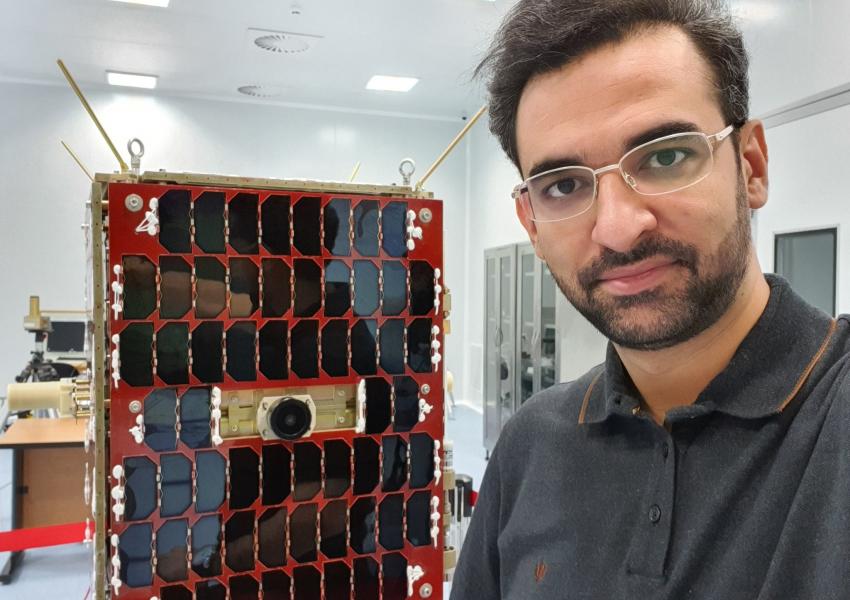
Rouhani Vents Frustration Over Prosecution Of Telecom Minister
In a televised clip from Wednesday’s weekly cabinet meeting, a visibly angry President Hassan Rouhani defended the telecommunications minister, Mohammad-Javad Azari-Jahromi, who was last week prosecuted over his failure to block Instagram and limit Iran’s network bandwidth.
“No one can be prosecuted for [improving network] bandwidth,” said Rouhani. “It was my order. If you want to put someone on trial, that would be me.”
In a tweet on Wednesday following the cabinet meeting, Rouhani said adequate network bandwidth was needed for online education, online business, access to information, and combating corruption; and that Azari-Jahromi should be thanked for his efforts. The minister thanked the president for this support in his own tweet.
Rouhani’s statement on bandwidth should not be interpreted as his endorsement for uncensored access to the Internet. Both Rouhani and Azari-Jahromi have been criticized by reformists and opponents of the Iranian regime for being complicit in internet blackouts during protests in the last three years. They also go along with the blockage of thousands of website and major social networks such as Facebook.
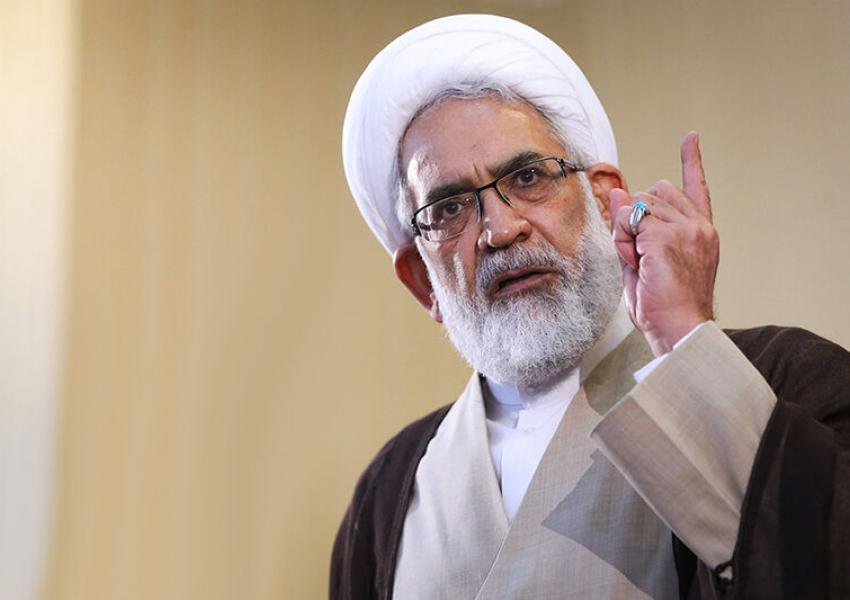
Prosecutor-General Mohammad-Jafar Montazeri
Nevertheless, the hardline core of the ruling elite wants more restrictions. Prosecutor-General Mohammad-Jafar Montazeri last week sued Azari-Jahromi for refusing to implement judicial orders and decisions of the Cyberspace Supreme Council (CSC) aimed at blocking access to all social-media platforms. Azari-Jahromi was briefly detained after a summons from the Press and Media Court on January 20 and released on bail.
Iran’s hardliners, who are in a majority in parliament and influential at the CSC, have long viewed social messaging services as rife with undesirable western culture and what they call political propaganda. Downloading speed – which is determined by network bandwidth – was in December on average 4.5 Mbps for Iranian home users, putting Iran 136th among 207 countries. Internet penetration has vastly grown over the past decade, with mobile broadband coverage reaching 91 percent of the population in 2020, according to the telecommunications ministry.
The only social-media platforms currently not blocked are Instagram and WhatsApp. The Iranian Students Polling Agency (ISPA) in May 2018 said WhatsApp was used by 32 million Iranians, while Instagram is a common tool in business and marketing. According to Novin Hub, an Iranian social networking management system, WhatsApp and Telegram each has around 50 million users.
A recent terms update by WhatsApp has caused many users around the world, including Iran, to seek alternatives, such as Signal. On January 15, the Iranian authorities blocked access to Signal.
The Information Technology Company of the telecommunications ministry – the Ministry of Communications and Information Technology, to give it its full title – is in charge of filtering websites deemed harmful by the Criminal Content Identification Taskforce. That includes hundreds of news and political sites not controlled by the Islamic Republic. The taskforce, formed in 2009, acts under the supervision of the prosecutor general.
The authorities have worked for several years to develop the National Information Network, a so-called "halal net,” while Iran has more websites blocked than anywhere other than China.


